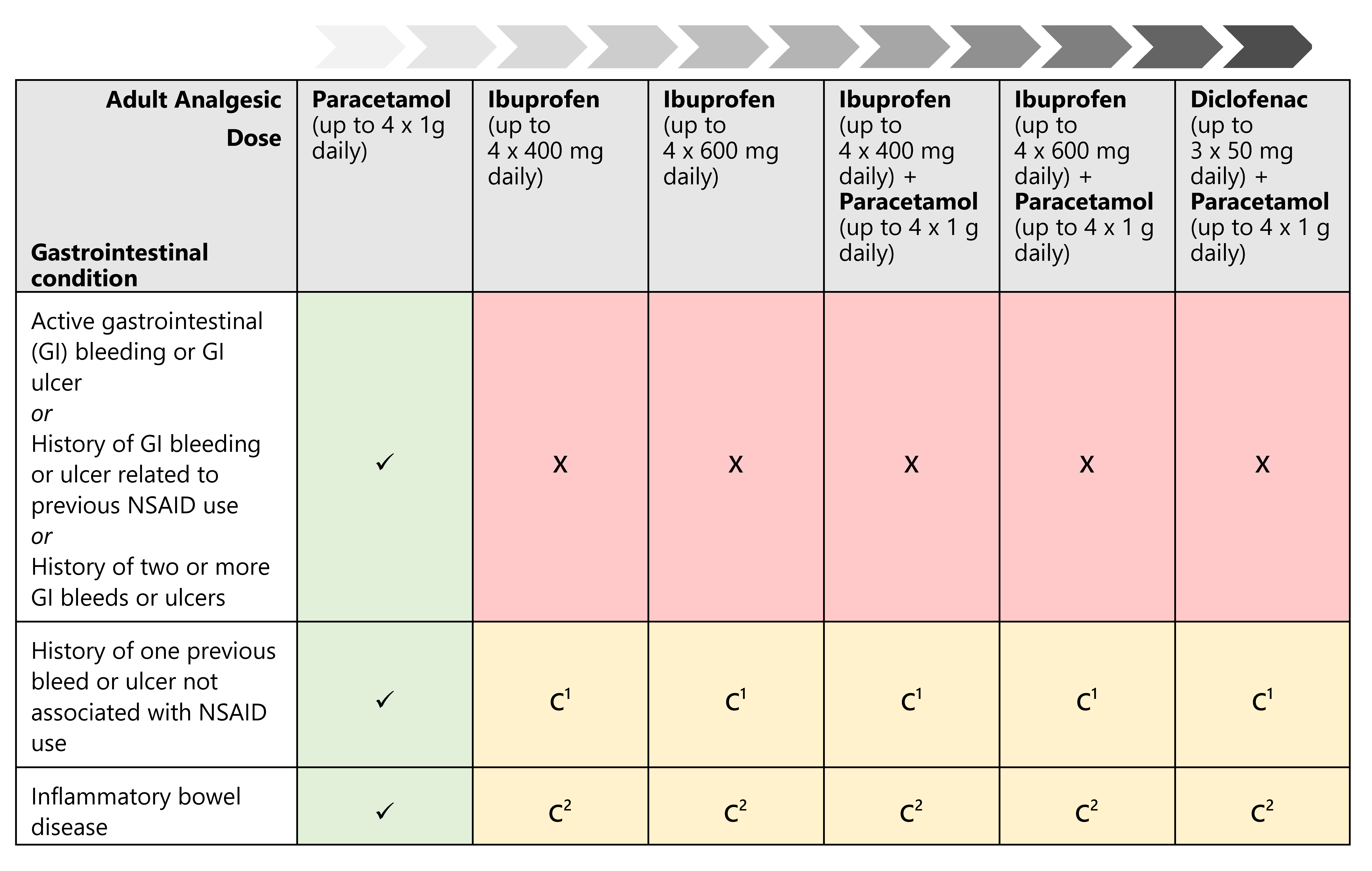Gastrointestinal conditions

Notes
- Prescribe NSAIDs with caution to people with a history of GI ulceration or bleed or people at high risk of GI adverse effects. Risk factors for NSAID–induced gastrointestinal (GI) adverse events include:
-
- Aged over 65 years
- A high dose of an NSAID
- A history of gastroduodenal ulcer, GI bleeding, or gastroduodenal perforation
- Concomitant use of medications that are known to increase the likelihood of upper GI adverse events (for example, anticoagulants, corticosteroids, selective serotonin reuptake inhibitors)
- A serious comorbidity, such as cardiovascular disease, hepatic or renal impairment (including dehydration), diabetes, or hypertension
- Heavy smoking
- Excessive alcohol consumption
- Previous adverse reaction to NSAIDs
- Prolonged requirement for NSAIDs
A PPI should be co-prescribed with an NSAID – liaise with the patient’s GMP if a PPI is not currently prescribed.
If in doubt about the patient’s level of GI risk or appropriate analgesics, consult with their GMP.
- Prescribe NSAIDs with caution to people with inflammatory bowel disease (NSAIDs may increase the risk of developing or cause exacerbations of ulcerative colitis or Crohn's disease).